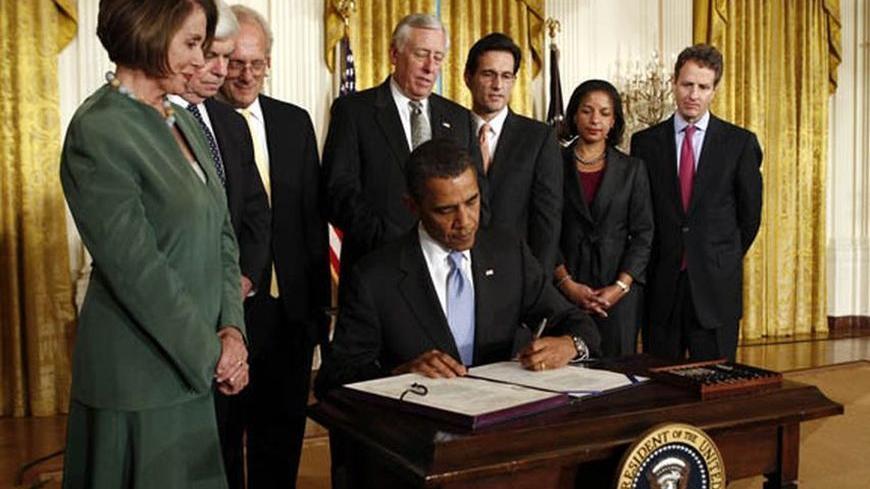Poor President Obama. There was a time — in a galaxy far, far away (January 2009)— that a potentially transformative president nominated for a Nobel Peace Prize was going to change the trajectory of America’s approach to the Middle East: engagement and diplomacy were the watchwords; war on terror was out, empathy and sensitivity were in, and tough rhetoric for the Israelis on settlements too.
What a difference a couple of years can make. Barack Obama is now more like a modern-day Gulliver tied up by tiny tribes whose interests are not his own and burdened with the remains of his own illusions that he’d create — or at least help to fashion — a new Middle East. Little did the president imagine that on much of his foreign policy he’d come to resemble a smarter, less reckless and ideological George W. Bush: surging in Afghanistan, keeping Gitmo open and whacking terrorists left and right with predator drones.



